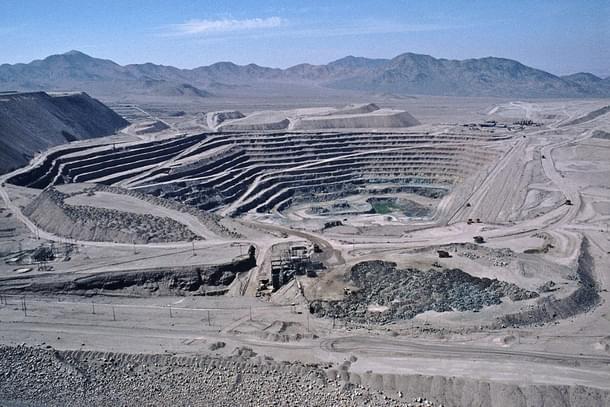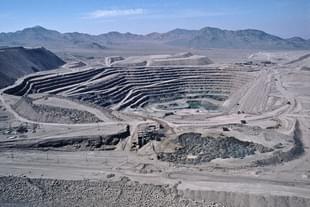News Brief
Lithium Prices Are Falling: Could This Help India’s Transport Electrification Drive?
Business Briefs
Apr 27, 2023, 10:50 AM | Updated 02:46 PM IST
Save & read from anywhere!
Bookmark stories for easy access on any device or the Swarajya app.


Lithium prices have been on a downtrend since the beginning of 2023, with prices for battery-grade lithium carbonate falling from 600,000 yuan per ton (Rs 70.6 lakhs) to less than 200,000 yuan(Rs 23.6 lakhs) per ton.
The fall in lithium prices could make batteries for electric vehicles cheaper, thereby facilitating a quicker transition to electric vehicles within India. Since batteries account for 30-50 per cent of an EV’s cost depending on the vehicle and make, a decline in prices would be helpful for consumers and auto companies.
EV sales are already growing rapidly despite the higher cost of ownership, and lower prices would only accelerate the trend.
Why are Prices Going Down?
The current decline in prices has several reasons.
Like all commodities, high prices attract more producers (miners in this case) into the industry – driving a price decline as supply begins to balance out with demand.
The high lithium prices last year enticed miners to start operating new mines, and analysts expect a nearly 20 per cent jump in supply in 2023 after flattish production growth in 2022.
The rapid growth in lithium supplies, along with a slowdown in demand globally, especially in China (the largest EV market) and lower demand for electronics, has resulted in lower prices.
Last year, Argentina had upwards of 10 mining projects under development, along with new African mines opening up. Car makers, too, had been reinvesting in lithium mining start-ups and were ready to buy batteries at a higher cost.
Alternative ways to extract or recycle lithium also gained traction, as higher lithium prices caused end-users to look for alternatives to traditional mining.
With carmakers now adjusting to lower demand, they’ve asked for lower price revisions from battery makers. These factors are in favour of India’s EV ecosystem, which is still dependent on foreign suppliers for sourcing lithium batteries.
But Prices Could Go Up Once Again
On the flip side, prices are still 300 per cent higher than the prices before the bull run began in the metal.
China is also reopening quickly, and the government is trying to kick-start growth that had stagnated after the lockdowns in the country.
Since contracts with battery makers and automakers are based on fairly long-term contracts, price negotiations and downward revisions take time.
If demand returns to normal levels, as Chinese automakers expect, the market could see high prices continuing for longer.
Further, the prices of the raw ore that lithium processors refine are still galloping upwards – while the prices of purified lithium continue falling. The dichotomy between the prices of the raw material and finished goods could cause some players to cut production or even shut down, as profits get impacted. That, too, could have put upward pressure on lithium prices.
Recycling and Alternate Technologies Could Help India
Over a longer time frame, however, lithium supply is expected to increase with new mines and recycling of older batteries is likely to contribute to a major chunk of the lithium supply in the market.
Indian companies are working on battery technologies apart from lithium-ion batteries. For instance, though Reliance has acquired a battery manufacturer named Lithium Werks, it has also bought into a start-up that produces sodium-ion batteries and provides battery swapping services in its EV petrol pumps.
Nevertheless, other technologies haven’t found widespread application, and the EV infrastructure globally has been constructed keeping lithium-ion batteries in mind – making lithium prices a variable that could impact demand in India.





